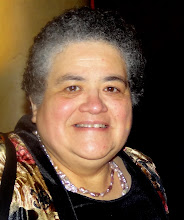
Published on Friday, January 11, 2008 by CommonDreams.org
Guantanamo–Six Years of Impunity
by Rosa Maria Pegueros
Twenty years ago, when I was the coordinator of a city program for the homeless, I spent an afternoon in jail, with an aching head from being put in a headlock and slammed against a wall by a rogue Los Angeles County Sheriff who hated the homeless and the people who served them. It was a very strange experience for someone who had never been in any kind of trouble before, and who always had a book in hand to ward off boredom.
For several hours following my arrest, I sat on a steel bench in a vacant holding cell. There was nothing to look at; nothing to read, not even graffiti. After a little while, I was desperate for anything; even a newspaper sports page would have been welcome. Outside, a city councilman argued with the chief of the Los Angeles County Sheriffs. In the meantime, I had no contact with anyone; they did not let me call anyone; they did not even book me until a couple of long hours later. Charlie, the policeman who booked me, was a nice guy with whom I had gone on a ride-along. Ride-alongs for the city’s social workers were encouraged, in part, to help us understand the role of the police on the street.
Charlie looked embarrassed as he took my fingerprints. He didn’t want me there any more than I wanted to be there. I went back to the cell to wait. I started to sing everything I could think of: children’s songs (my daughter was in first grade at that time); synagogue melodies, many of which had no words, just the nonsense syllables: di, dee dee di, dee dee di, di; songs I learned in grade school, “This Land is your land,” “Oh beautiful for spacious skies,” “Amazing Grace.” I don’t know if my singing persuaded them to let me go but after what seemed like an eternity, the city Councilman and the chief of the County Sheriffs finally came to an agreement: I would be released on a warrant—something like a moving violation—but I had to appear in court to answer the misdemeanor charges. The charges were very funny to anyone who knew me: assault on a police officer, interference with an officer in the course of his duties; interfering in an arrest; comic, downright comic: As if _I_, a short, stout, peace-loving middle-aged woman, would have the nerve or the inclination to assault the meanest deputy in the department—my 5’4” vs. his 6’4”. As if.
The jury arrived at a verdict in record time: I was acquitted of all charges. They gathered around me after the trial to tell me that they could tell that the deputy sheriff was a liar. Of course, in accordance with the judicial practice in
I was thinking about this incident because it has been six years since the first prisoners were taken in orange jump suits, chains, and disorienting hoods pulled over their faces to our prison for enemy combatants at our naval air station in
Even so, I cannot imagine the mental condition of a prisoner like Jose Padilla, the American citizen and
Natan (Anatoly) Sharansky, was a Russian dissident and Soviet Jew who was imprisoned by the Soviets. In his autobiography, Fear No Evil he describes his survival through the isolation and torture by the Soviets in part by falling back on his training as a mathematician, working equations in his head, and playing chess mentally, against himself; his self-discipline enabled him to survive the horror. He must have an extraordinary intellect and self-discipline to have been able to live to tell the tale with his sanity intact. After his release, he emigrated to
Those of us who oppose the detention center in
The only way we can right this shameful situation is to repudiate, not only with words but by our actions and policies, our country’s invasions and war-mongering, and the disregard of our own values as they are in our Constitution and its amendments. Some of us have consciences. It’s time for the

